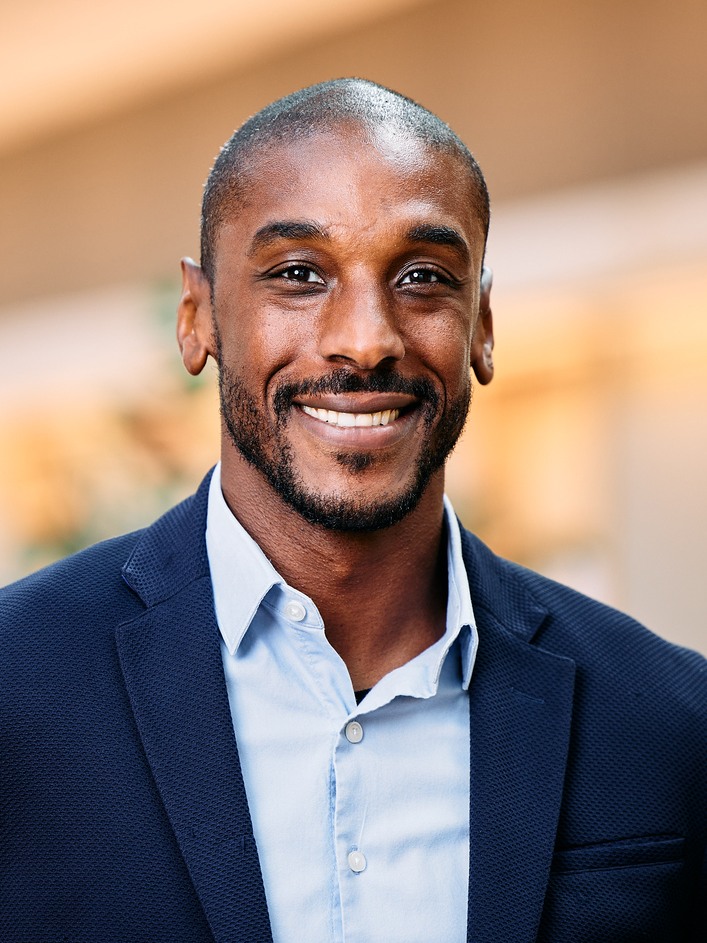This fall the Watson Institute hosted a unique study group in collaboration with the Undocumented, First-Generation College, and Low-Income Student Center (U-FLi), entitled "Leadership and Networks — Preparing for Future Opportunities." This special study group, which was open to all students, focused on skill-building and leadership development for first-generation, low-income and undocumented students and was developed alongside student leaders at Brown. The study group allowed students the opportunity to meet, learn from, and network with highly successful Brown alumni who are familiar with the challenges they face.
Senior International and Public Affairs (IAPA) concentrator and first-generation college student Logan Danker said he found it helpful to engage with "people who themselves were first-gen students who are well into their career and can understand the issues that first-gen students have with the benefit of hindsight." "It was a great opportunity for students to get mentorship and insight from some highly accomplished professionals," he added.
Unlike previous Watson study groups, which typically are led by a single practitioner, "Leadership and Networks" was led by multiple prominent Brown alumni practitioners, including 1983 graduate Tom Perez; 1984 graduate León Rodríguez; 1994 graduate Angel Brunner; and 2003 graduate Robin Juliano. Watson Institute Associate Professor of the Practice of International and Public Affairs David Blanding, who earned both an M.A. and Ph.D. in political science from Brown, led the final session of this semester's study group on November 2.
The practitioners, all of whom identify as first-generation college students, brought a wealth of knowledge and experience to the study group. Perez serves as director of Intergovernmental Affairs for the Biden administration; Rodríguez is a partner in the Washington, D.C. office of Seyfarth Shaw and served under former President Obama as director of U.S. Citizenship and Immigration Services; Brunner is the CEO and founder of EB5 Capital and a trustee of the Brown Corporation; and Juliano is a principal at Cornerstone Group, a bipartisan public affairs consulting firm and previously served as clerk and staff director for the House Committee on Appropriations.
According to the Center for First-Generation Student Success, about one-third of all U.S. undergraduate college students are "first-generation," meaning neither of their parents holds a four-year college degree. While these students often bring enthusiasm, determination and new perspectives to their educational institutions, they also face social, academic and financial challenges that their continuing-generation peers typically do not.
There are key demographic differences between first-generation students and their continuing-generation peers that can make the college experience more challenging, including income, racial and age disparities. These differences, coupled with a lack of family members attuned to the subtleties of pursuing higher education, mean first-gen students tend to be less skilled at navigating college bureaucracies and the practice of networking.
The differences can be even more stark at Ivy League and other elite institutions like Brown. For starters, first-gen students find themselves among an even smaller minority at these schools. According to a press release from Brown's Office of University Communications, 15% of the class of 2027 is comprised of first-generation college students, about half the national average. As a result, many first-generation students at Brown report that they struggle with "imposter syndrome" (the anxiety that they don't belong despite meeting objective criteria).
Jessica Saenz Gomez, a fifth-year Brown student and Watson Master of Public Affairs (MPA) student said she struggled with imposter syndrome when she first arrived at Brown but over time has come to appreciate her contributions to the community as valuable. "I've always suffered from imposter syndrome," she said, "but it's been a journey to get where I am now. I know my contributions involve not only my understanding of the topics that we're learning about but also my lived experiences."
She added that she now understands how "beneficial and meaningful" her lived experiences are in spaces like Brown, "especially in the realm of policy." Saenz Gomez currently serves as the MPA program's admissions student ambassador.
Awareness of these and other struggles faced by first-generation, low-income and undocumented students led the University to create the U-FLi Center in 2016 to provide additional support for these students at Brown and "create alternative pathways for holistic student success that are rooted in intentional relationship building, shared learning, and collective action towards economic and immigrant justice." Watson and U-FLi created the "Leadership and Networks" study group as a means of providing additional support.
"As a first-generation college student there are so many things you don't know," said Blanding, who also serves as director of the MPA program and himself identifies as a first-generation college student, "things like knowing there is a financial aid office, knowing there's a registrar, and what these offices do. There are all kinds of hidden expectations that were just utterly unknown to me."
